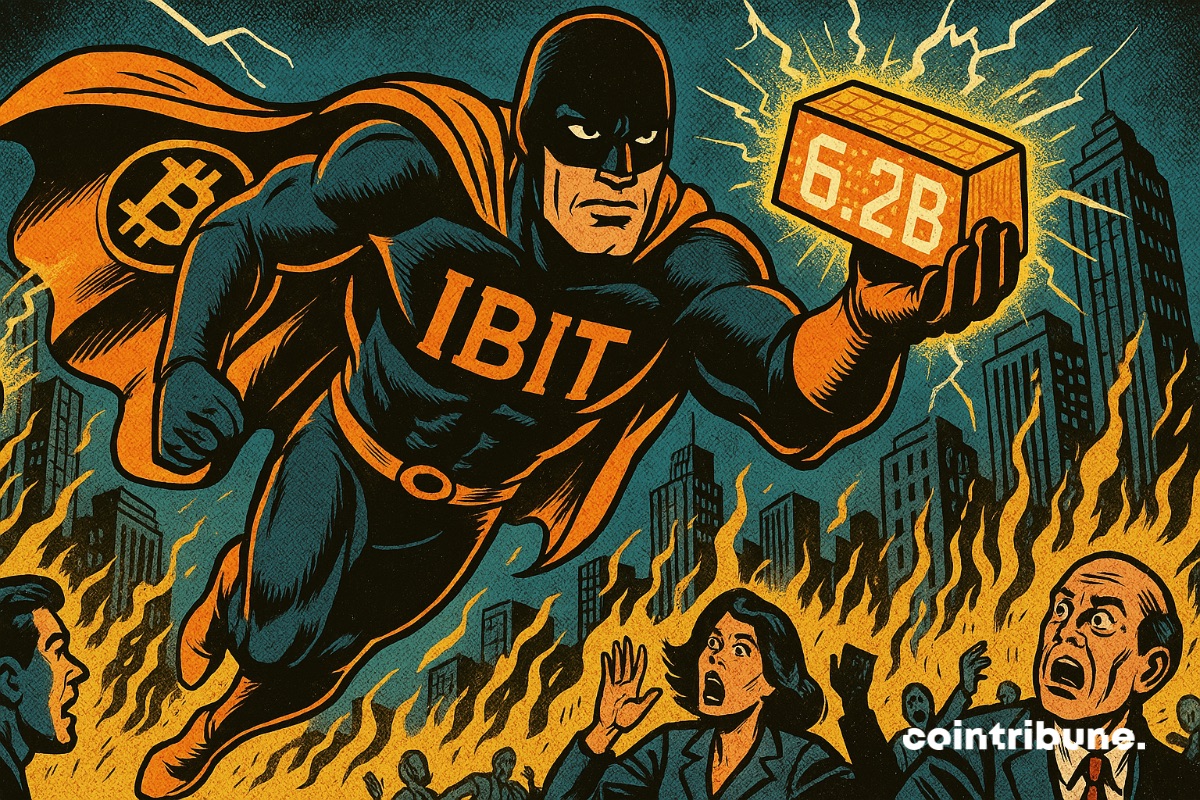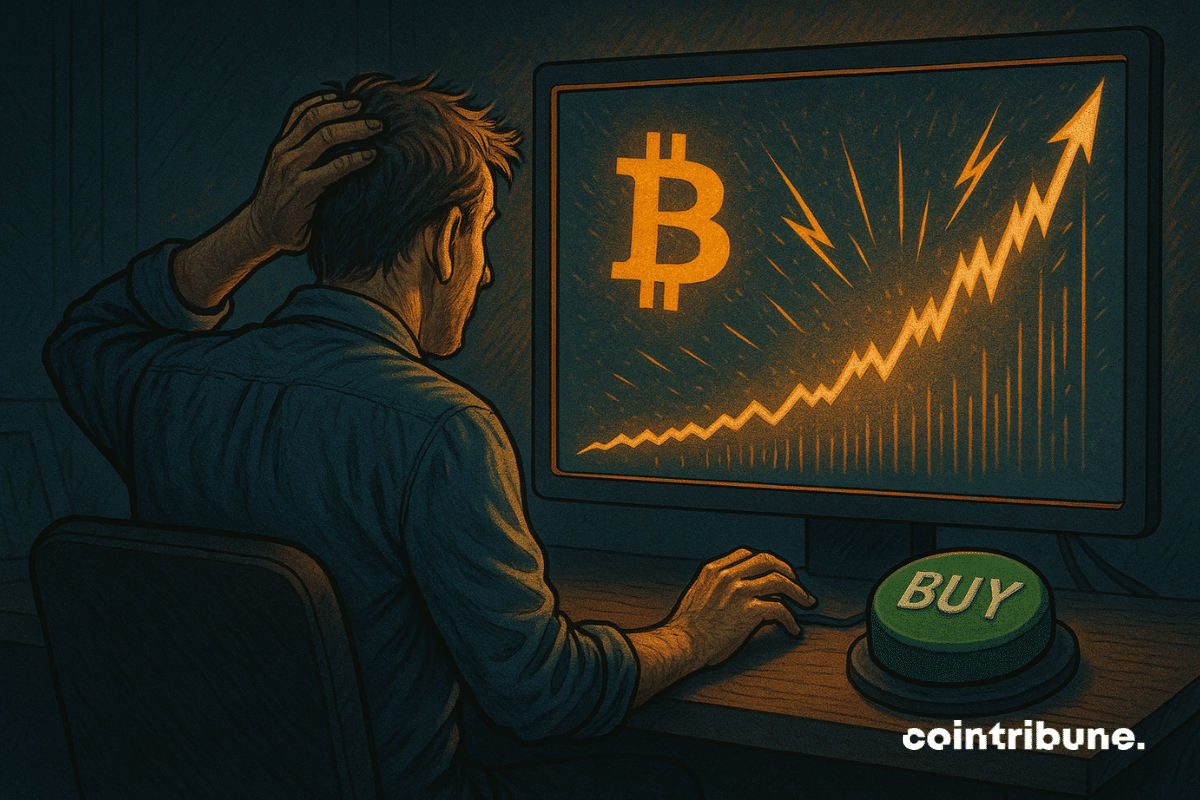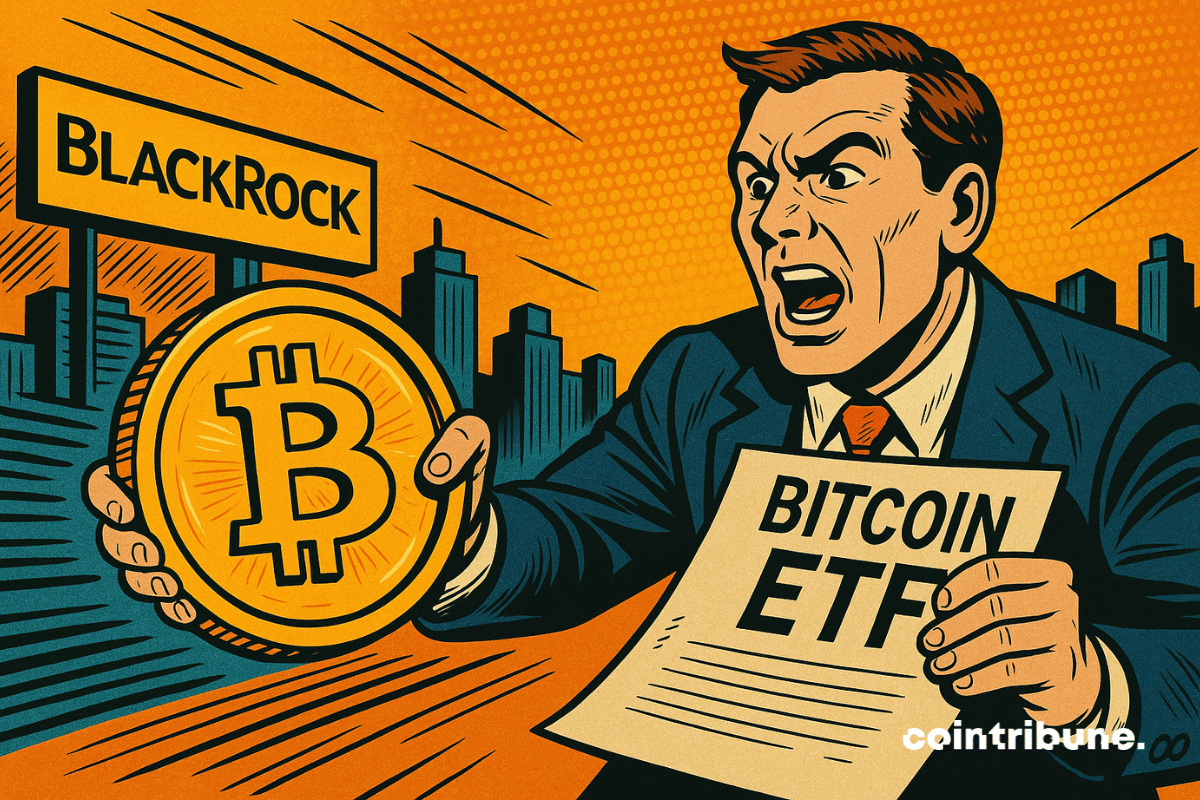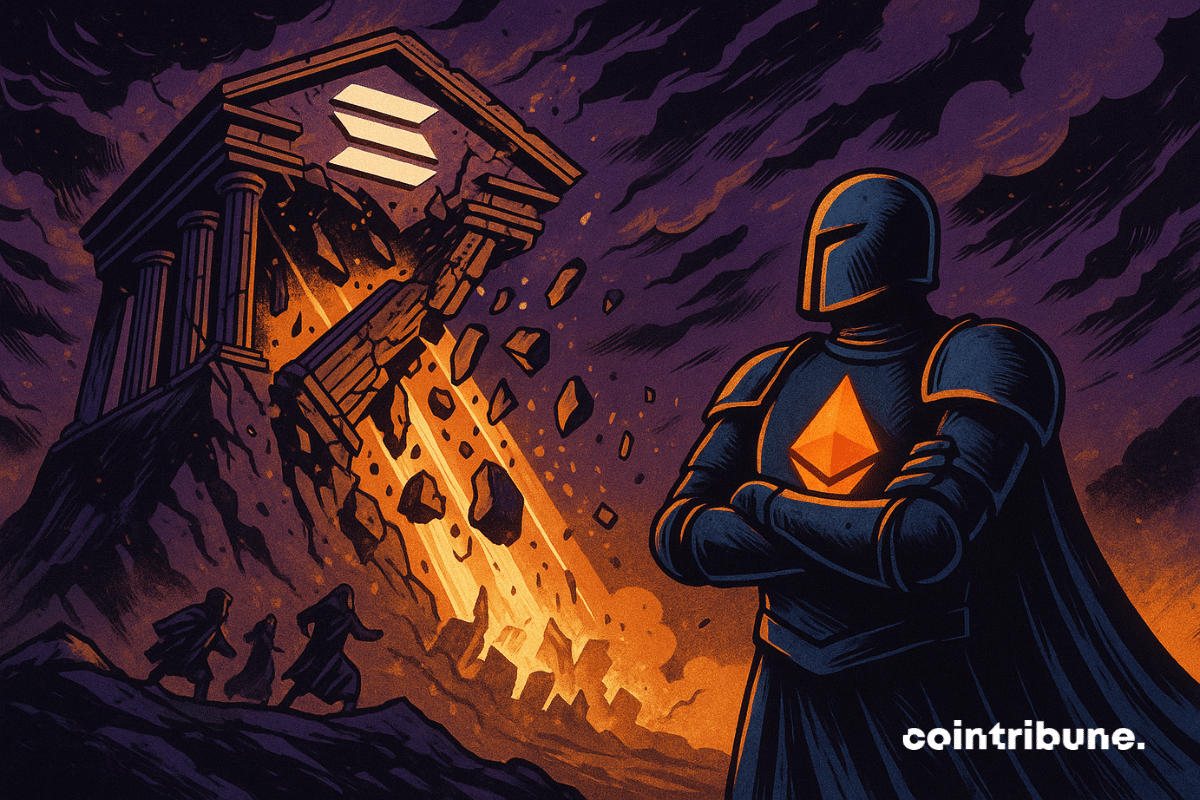While the little ones toil to mine, BlackRock quietly rakes in millions of Ethereum. Centralization, you say? What if the crypto revolution changed owners…
BlackRock
In just a year and a half since the launch of the first U.S. spot Bitcoin ETFs, institutional investors have poured over $50 billion into crypto through regulated financial products. The message is clear: Bitcoin is going mainstream, and it's happening fast.
When ETFs fill up like broken pockets and bitcoin breaks through the ceiling, traditional markets wonder: have cryptos become acceptable to the suit-and-tie crowd?
According to data from Token Terminal, over $6 billion worth of tokenized assets now live on the Ethereum blockchain. That’s not theoretical DeFi liquidity, but real-world funds, from some powerful names in global finance.
While crypto ETFs are hitting record highs, volumes are evaporating. Blackrock and Fidelity are leading the influx, but the market seems to be holding its breath. Boom on the surface, empty underneath?
Larry Fink endorses bitcoins faster than miners can produce them. While staking is making its appearance, the ETF is turning BTC into a nice, juicy pawn.
Ethereum is stumbling, ETFs are exploding, big holders are accumulating, and retail is asleep. What if Ethereum's crypto is quietly preparing for a major upheaval? Here's a behind-the-scenes look.
When bitcoin ETFs are making numbers like never before, investors are jigging while Wall Street rediscovers crypto, their eyes fixed on curves that rise steadily.
While Bitcoin struts its stuff, Ethereum is digging its furrow. Discreet but robust ETFs, stealthy rebalances, rock-bottom fees... what if the little brother became the darling of the big wallets?
The investment giant BlackRock surprised the crypto market by resuming its massive purchases of Ethereum, just 24 hours after making a spectacular sale of over 8,000 ETH. Why this sudden turnaround?
BlackRock dominates Bitcoin ETFs with $69.7 billion. We provide all the details in this article!
The crypto market attracts $1.9 billion in a week. Should we ride the wave or be cautious? Discover the key figures in this article!
Saylor assures us: the crypto winter is over. But when Bitcoin climbs to new heights, who picks up the shovels, and above all… who sells the picks?
In May, cryptos are surging, RWAs are skyrocketing, and Binance declares: "All is well." But behind the numbers, a creeping tokenization is quietly disrupting traditional finance…
When Michael Saylor proposes to Apple to exchange its shares for bitcoin, it's not a joke... or maybe a crypto revolution wrapped in an iPhone, who knows?
As the U.S. federal debt has just crossed the staggering threshold of $36 trillion, Larry Fink, CEO of BlackRock, warns: without a significant rebound in growth, the world's most powerful economy risks hitting a fiscal wall. Behind this alert lies an explosive equation involving chronic deficits, political inertia, and increased dependence on foreign investors.
On Thursday, June 6, the asset management giant experienced a record withdrawal of $130.49 million from its Bitcoin spot ETF IBIT, the largest since its launch in January. This shock was enough to drag the entire Bitcoin ETF market into the red for the second consecutive session, raising doubts about the institutional momentum that had been supporting these bitcoin-backed investment vehicles.
On June 5, BlackRock did nothing. Not a dollar, not a movement, not even a shiver. Its Bitcoin ETF, IBIT, which until now had been a war machine for incoming capital, remained frozen. And this is not trivial. In a market where immobility is often more concerning than panic, this inaction is worth much more than just a simple zero. While others are bleeding, BlackRock stands still. And in this gesture, there may be more strategy than lethargy.
As cryptocurrencies attract more and more institutional investors, BlackRock has marked a turning point with the acquisition of $48.4 million in Ethereum (ETH). This operation, involving a significant amount of ETH, underscores BlackRock's confidence in the future of Ethereum, as well as the growing influence of institutional players in the blockchain ecosystem. Such an investment demonstrates the evolution of investment strategies and the increasing appeal of cryptocurrencies beyond Bitcoin.
WisdomTree already has its ETF, but the SEC wants to rethink the rules. Bitcoin in-kind? Possible. Behind this step towards innovation, the agency is sharpening its tools to maintain control.
While Bitcoin is napping above 100,000 dollars, Ethereum is filling the coffers. Funds are pouring in, ETFs are buzzing: who said that crypto is running out of steam?
BlackRock shatters all records with its Bitcoin ETF IBIT: over 6.2 billion dollars invested in one month! Discover how this phenomenon could transform Bitcoin and disrupt the crypto market.
Telegram raises $1.5 billion despite Durov's lawsuits and partners with xAI to integrate Grok. All the details in this article!
Bitcoin and Ethereum ETFs reach historic levels of investment, not seen since January 2025. Details here!
"BlackRock sounds the quantum alarm: is Bitcoin ready?" This phrase resonates as a major warning for the crypto world. The asset management giant reveals a growing threat: quantum computing. This emerging technology could eventually compromise the cryptography protecting Bitcoin. Despite this warning, Bitcoin ETFs continue to attract record inflows, a sign that confidence remains strong. Meanwhile, Naoris Protocol establishes itself as the native post-quantum response, already deployed to protect Web3 and Web2 infrastructures. This advancement prepares the ecosystem for a future where quantum power will no longer be just a theory but a reality.
While Bitcoin is napping around $103,000, institutional funds are buzzing like ants around a sweet $600 million ETF.
Bitcoin has stood the test of time. Buying bitcoins today is significantly less risky than it was 10 years ago, 5 years ago, and even 1 year ago.
When crypto plays leapfrog with the quantum computer, BlackRock warns about Bitcoin, while future hackers are already rubbing their hands together.
The prestigious investment bank Goldman Sachs is increasingly strengthening its position in the crypto ecosystem. With a $1.4 billion stake in BlackRock's Bitcoin ETF, it now stands as the largest institutional holder of this financial product. What does this massive investment reveal about the future ambitions of the banking giant?
While Solana parades on X with memes, Ethereum, the immovable rock, endures. Institutions, on the other hand, prefer solid ground over buzz: the fortress holds strong, for now.
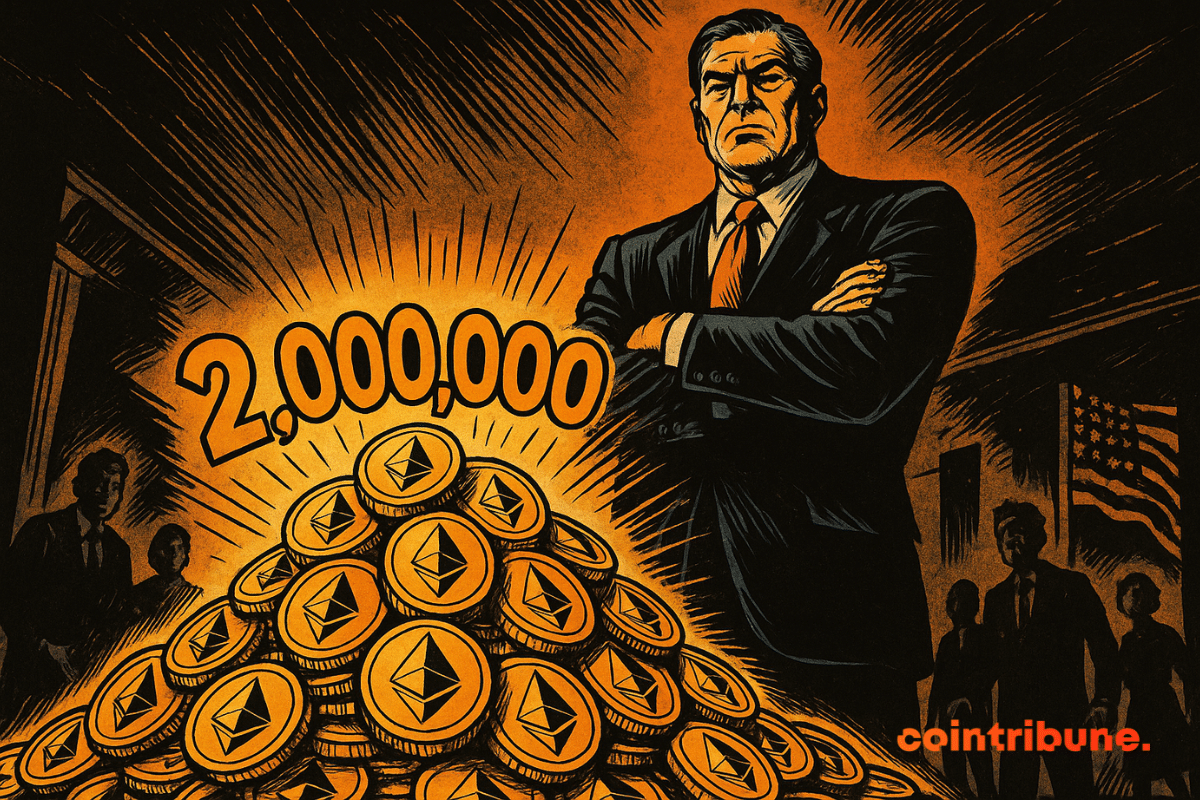




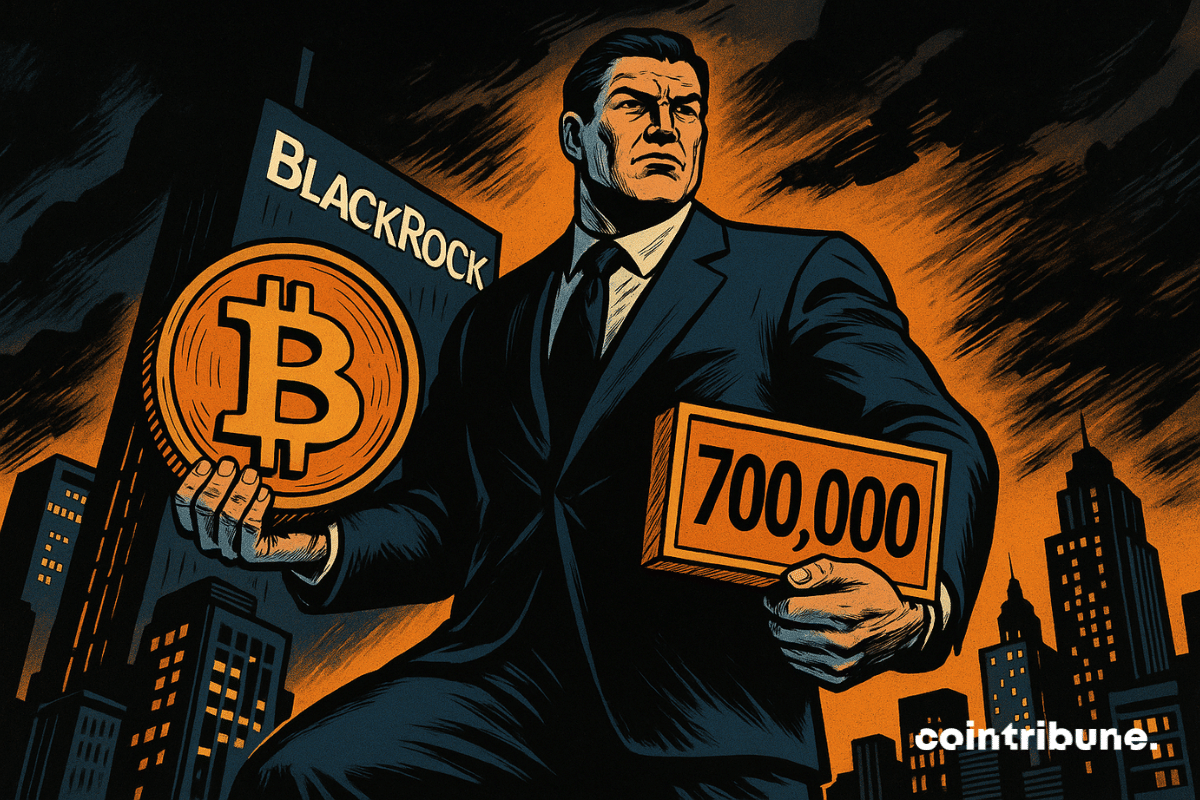
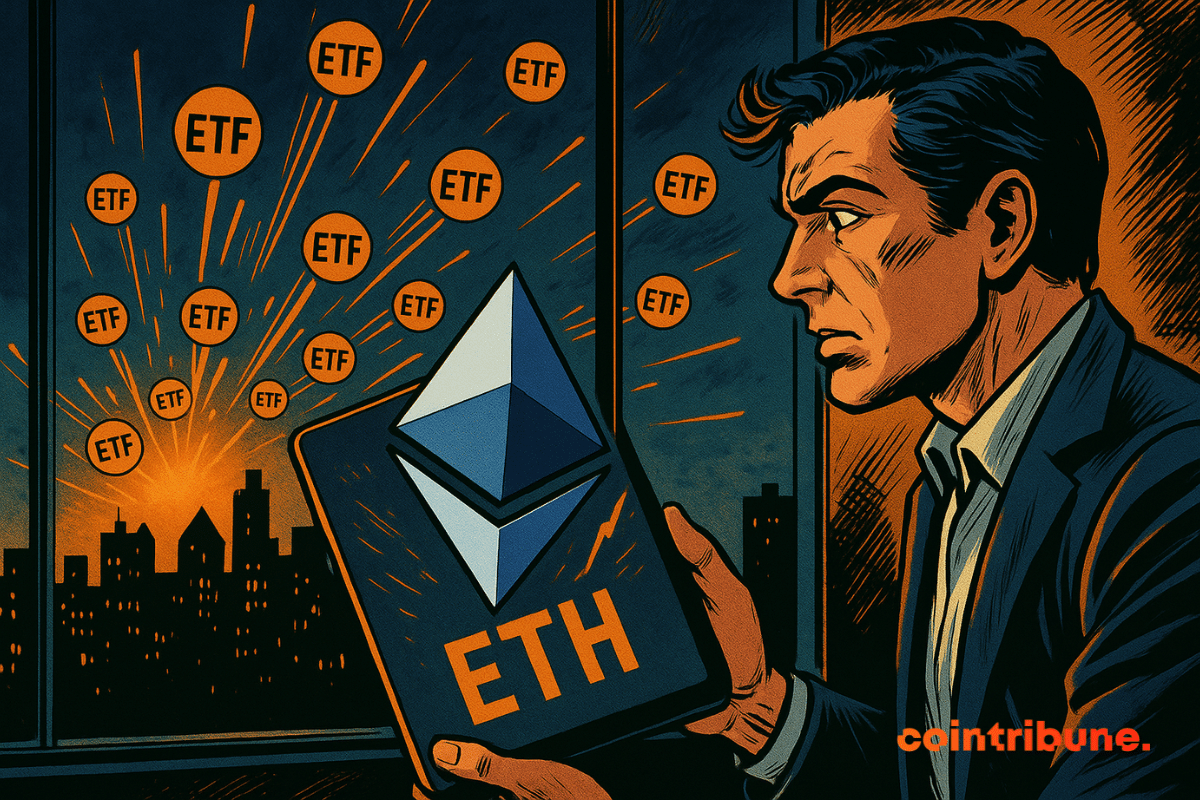

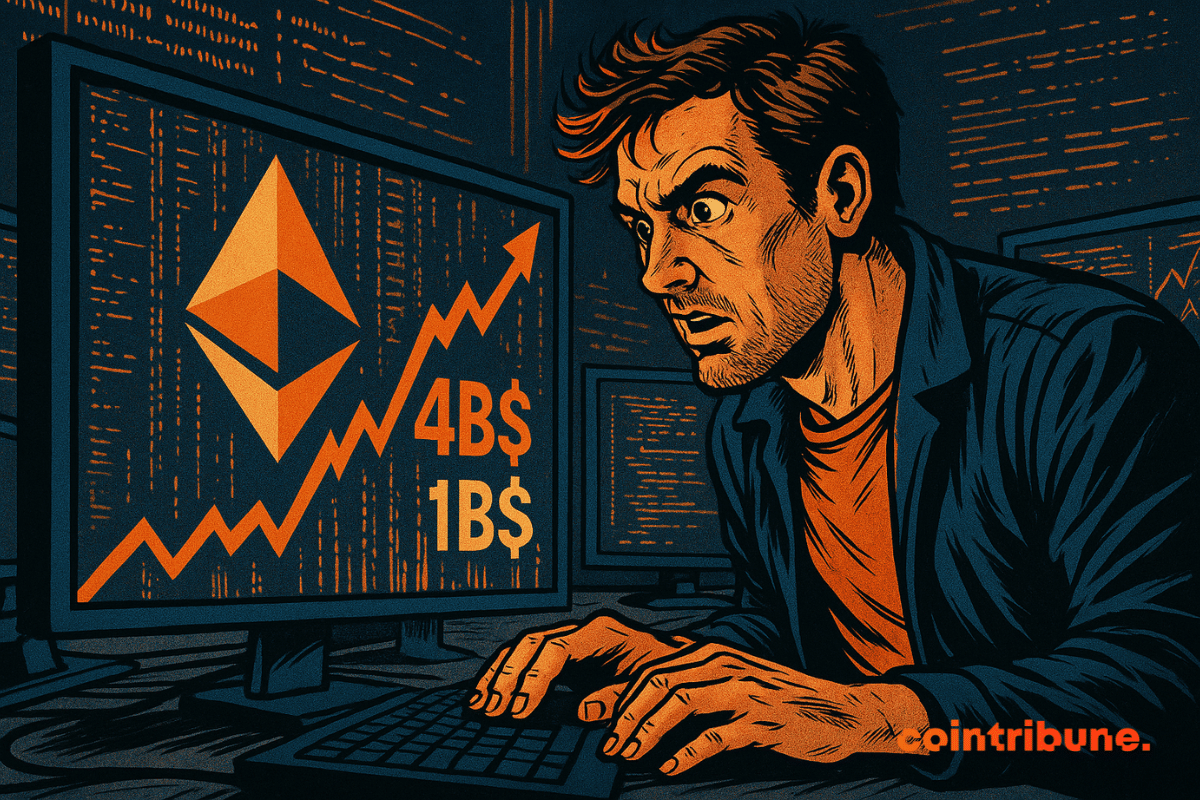
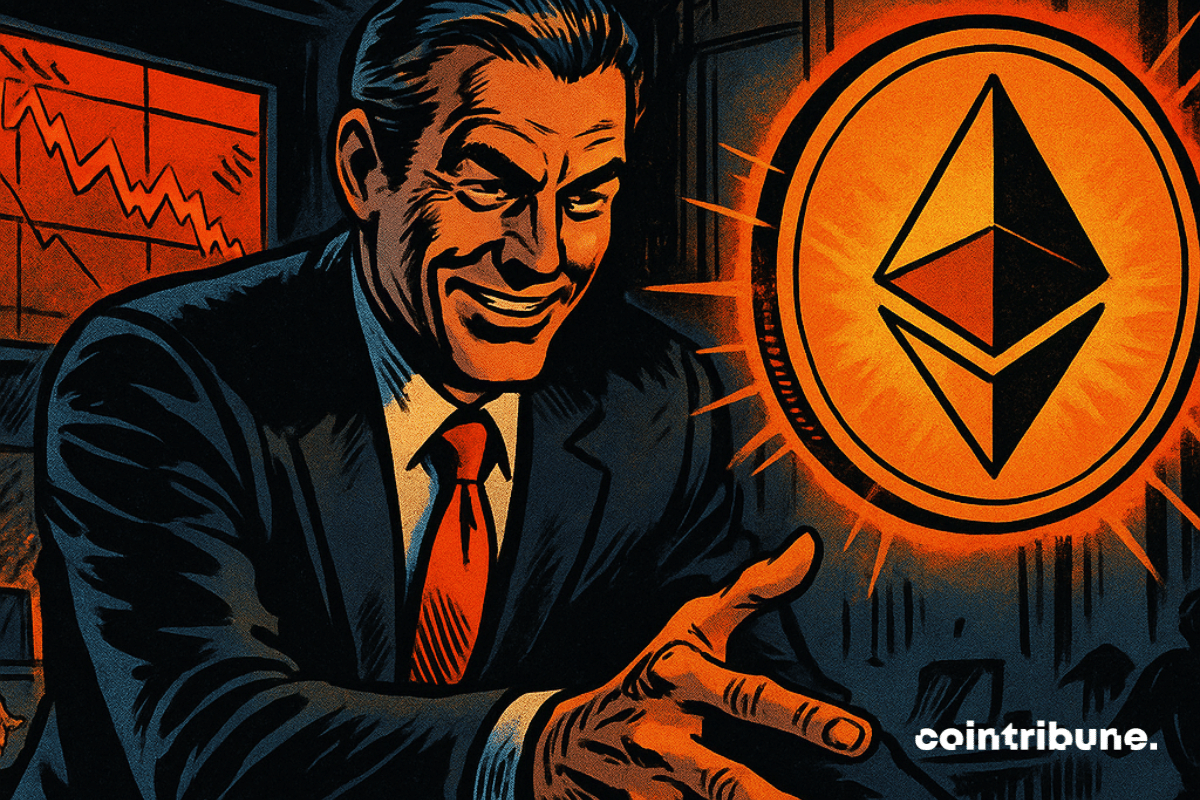


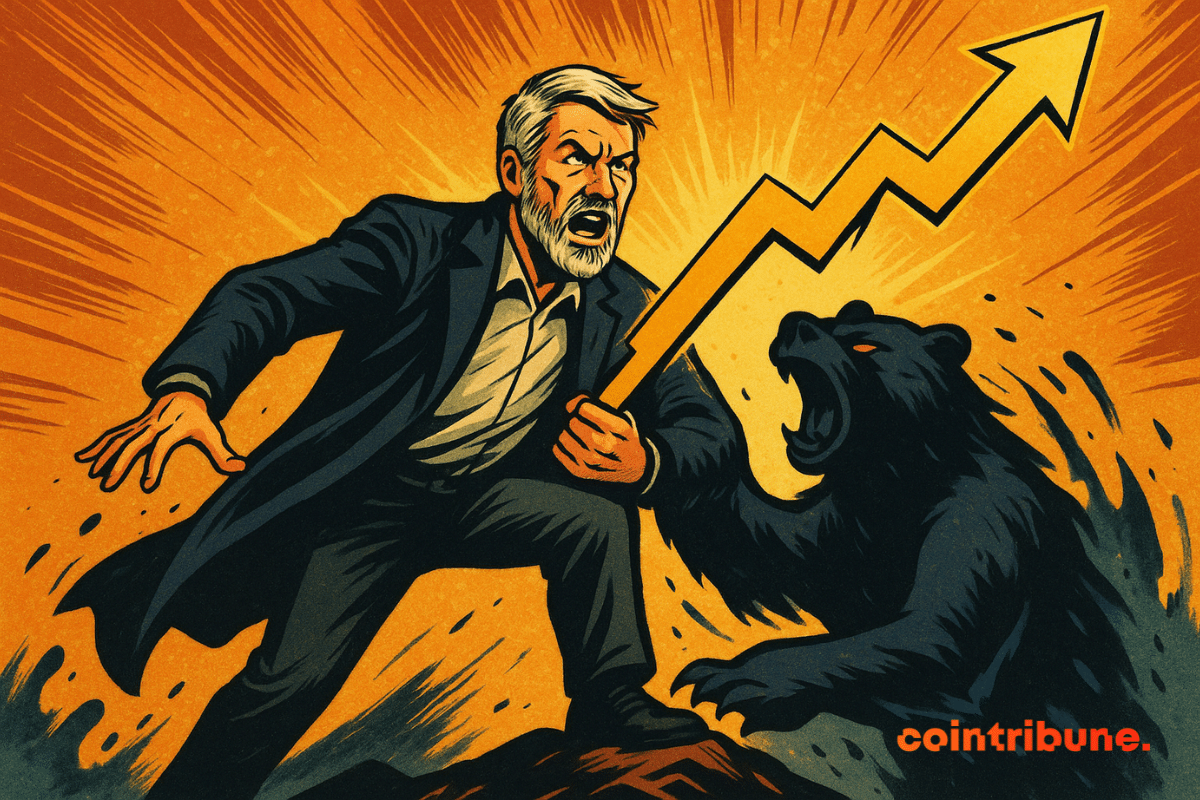
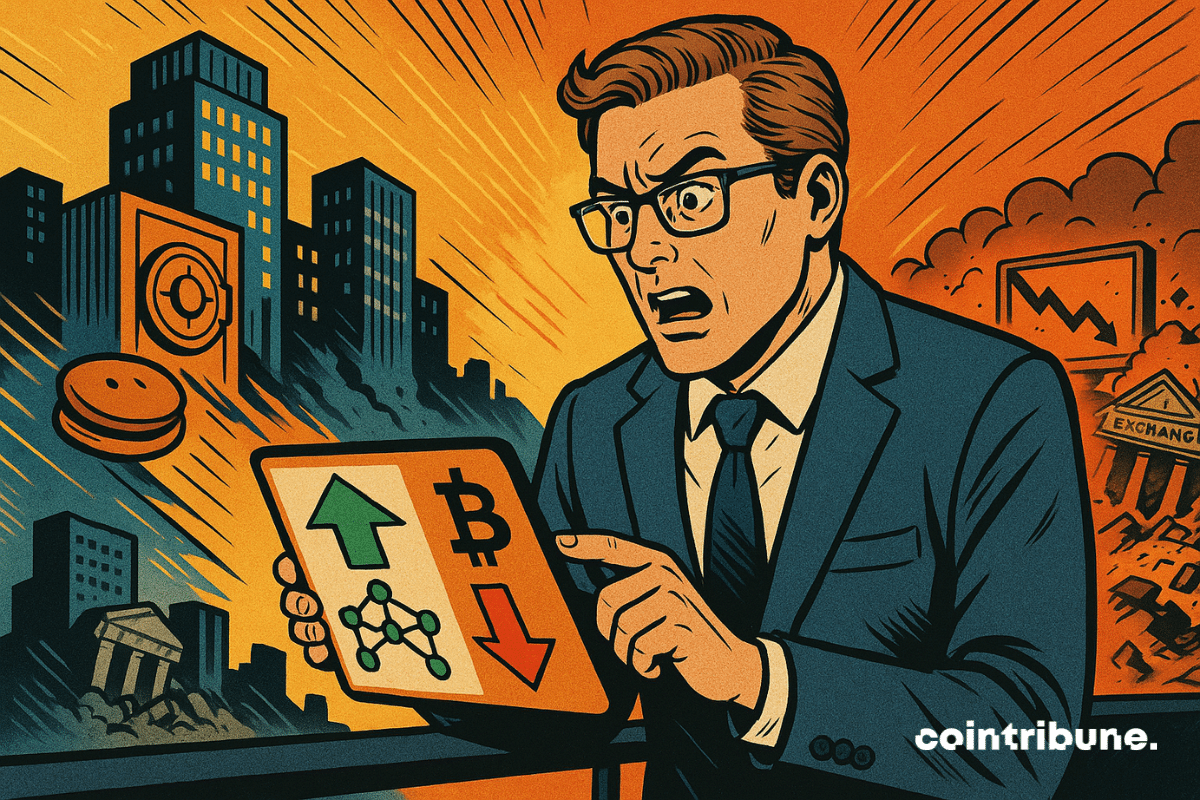
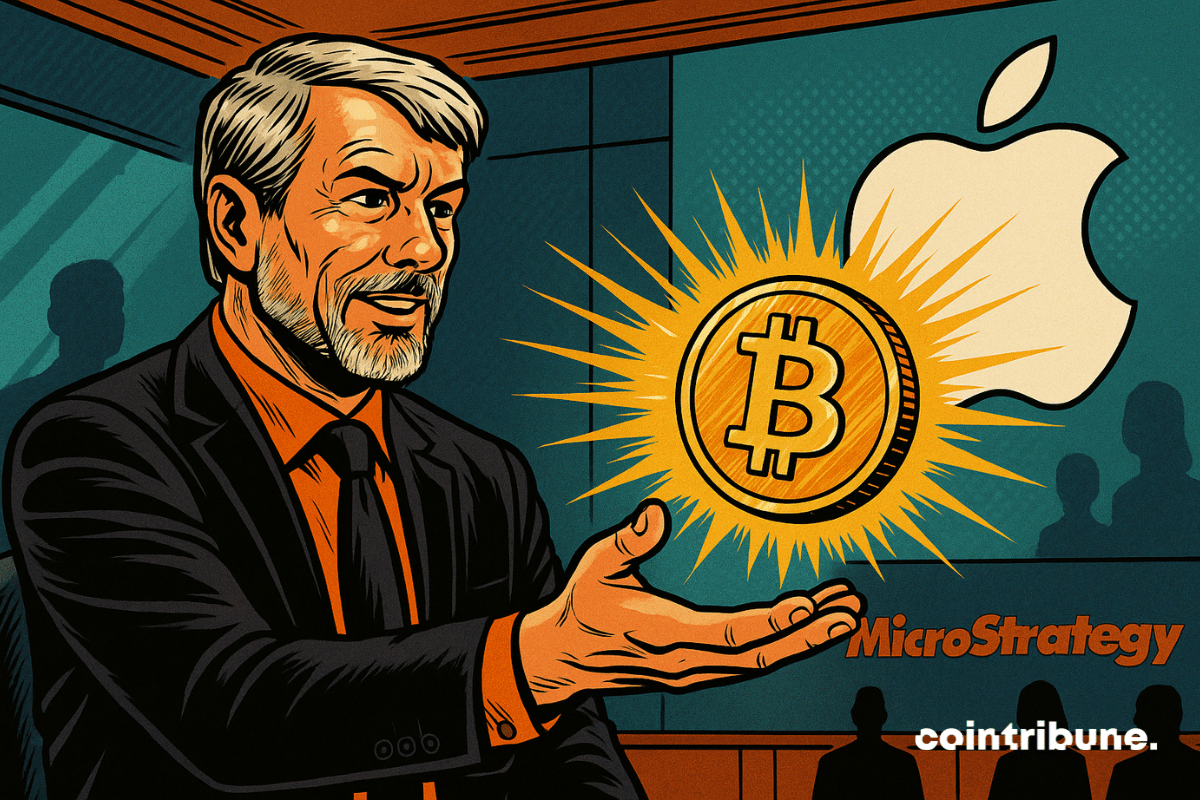
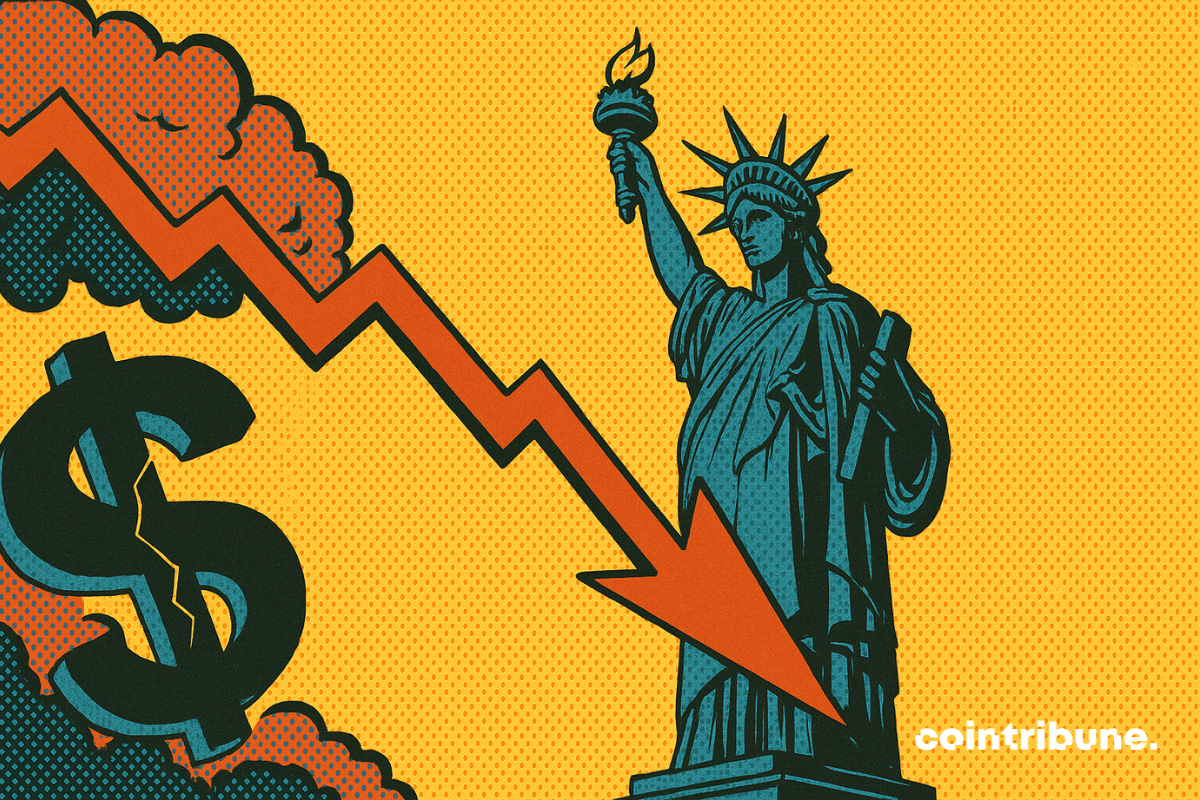
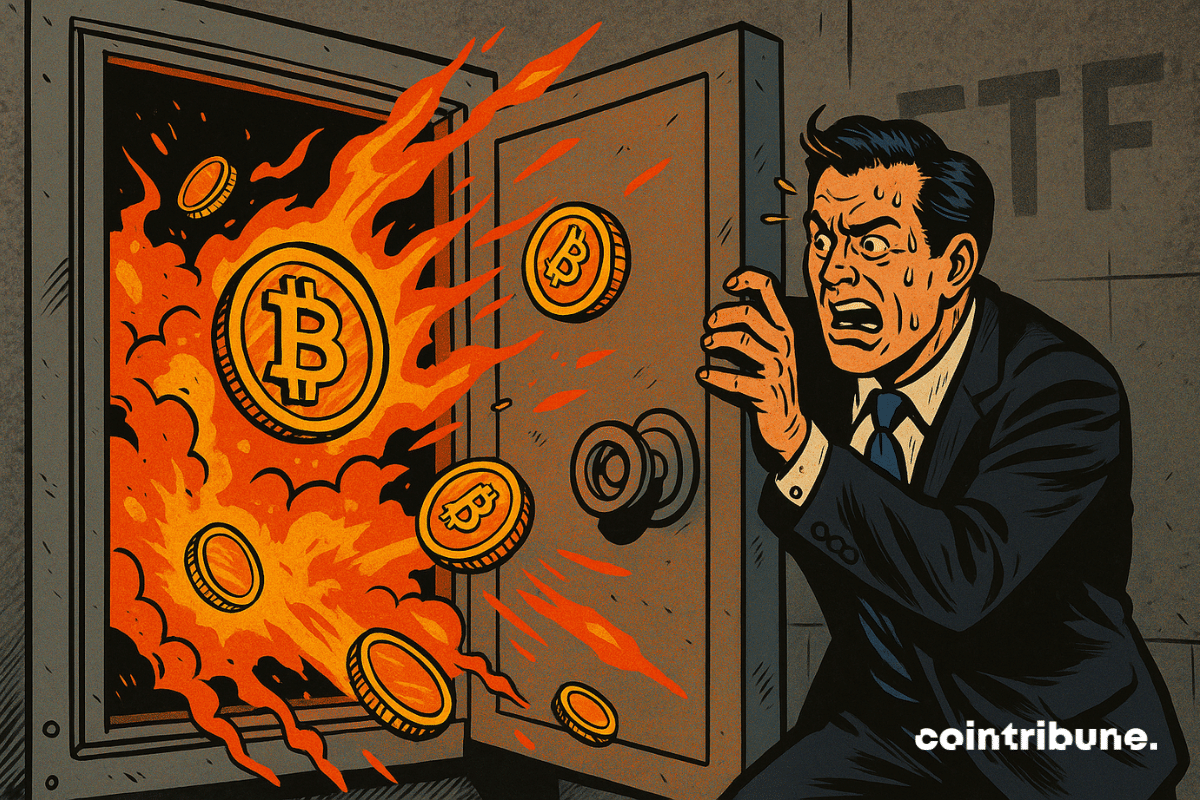
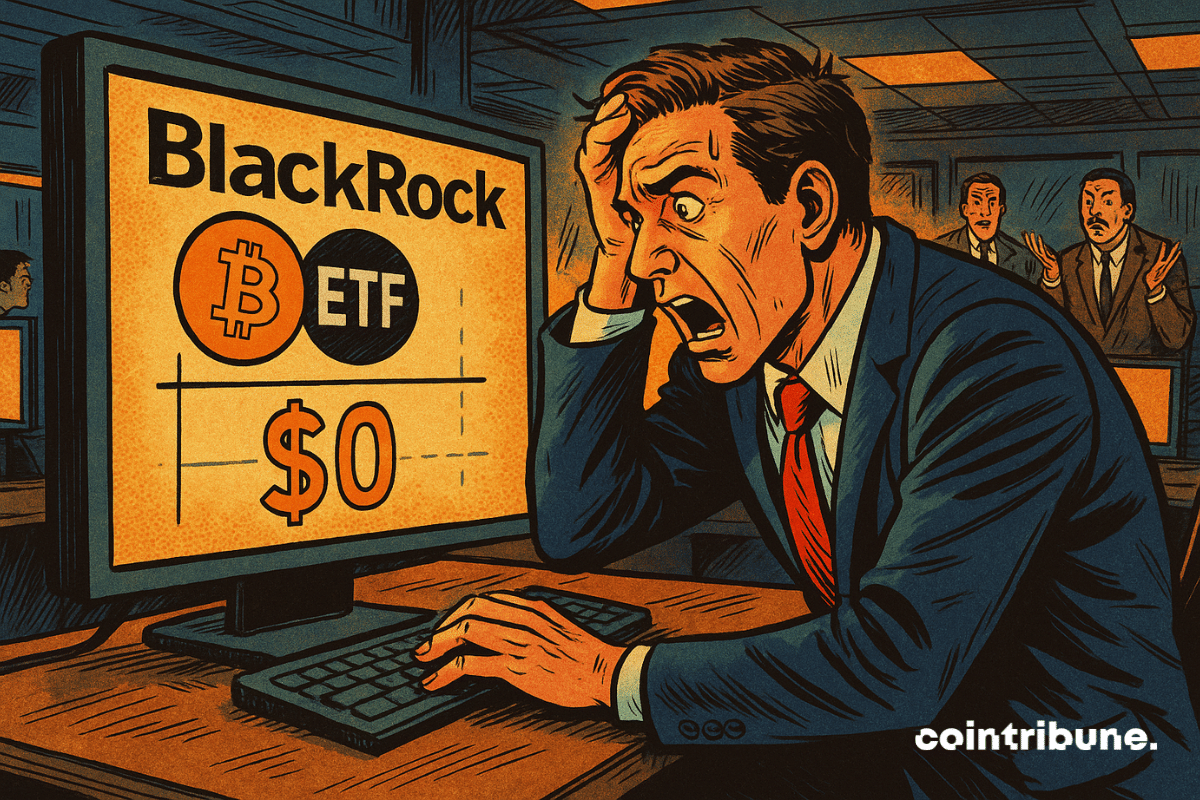 "." class="img img--ratio w-auto h-auto" src="data:image/svg+xml,%3Csvg%20xmlns='http://www.w3.org/2000/svg'%20viewBox='0%200%200%200'%3E%3C/svg%3E" data-lazy-srcset="https://www.cointribune.com/app/uploads/2025/06/Black-Dollar-0.png 1200w, https://www.cointribune.com/app/uploads/2025/06/Black-Dollar-0-300x200.png 300w, https://www.cointribune.com/app/uploads/2025/06/Black-Dollar-0-1024x683.png 1024w, https://www.cointribune.com/app/uploads/2025/06/Black-Dollar-0-768x512.png 768w" data-lazy-sizes="(max-width: 300px) 100vw, 300px" data-lazy-src="https://www.cointribune.com/app/uploads/2025/06/Black-Dollar-0.png">
"." class="img img--ratio w-auto h-auto" src="data:image/svg+xml,%3Csvg%20xmlns='http://www.w3.org/2000/svg'%20viewBox='0%200%200%200'%3E%3C/svg%3E" data-lazy-srcset="https://www.cointribune.com/app/uploads/2025/06/Black-Dollar-0.png 1200w, https://www.cointribune.com/app/uploads/2025/06/Black-Dollar-0-300x200.png 300w, https://www.cointribune.com/app/uploads/2025/06/Black-Dollar-0-1024x683.png 1024w, https://www.cointribune.com/app/uploads/2025/06/Black-Dollar-0-768x512.png 768w" data-lazy-sizes="(max-width: 300px) 100vw, 300px" data-lazy-src="https://www.cointribune.com/app/uploads/2025/06/Black-Dollar-0.png">



